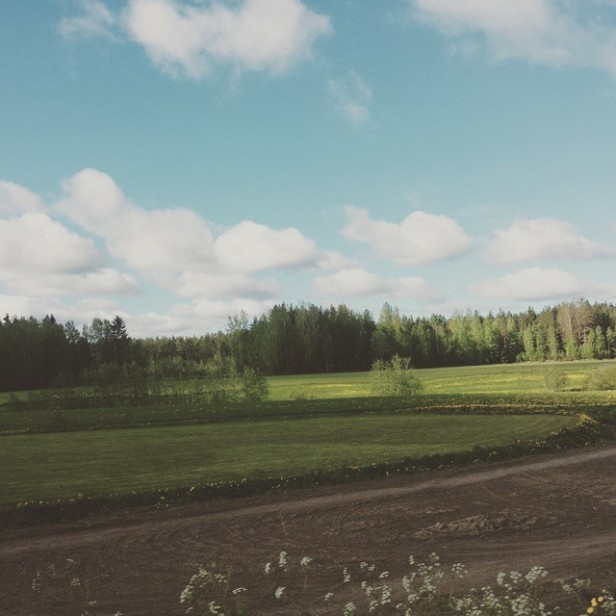Growing food in northern Europe is the perfect example of a market failure.
The weather is cold and unpredictable, the labour costs high, and few of the areas here are known for being particularly fertile. In strict economic terms, we would be better of letting someone in a warmer place produce the food, which we then could trade for something else.
However, food is amongst the most basic needs of human beings, and maintaining a certain degree of self-sufficiency is a strategic interest. Enter the need for the government to step in and subsidize the farming sector.

Interestingly enough, while the Finnish agricultural sector is very limited in the scope of people employed by it, the former Agrarian party is still a dominant force within the current Finnish political landscape. Exactly how this has come to be is an interesting question, but for now it is enough to note that the Centre Party currently is the largest party and holds the Prime Minister’s seat, and apart from including a strong agricultural wing, the party also has a history of leading the Finlandisation process during the Cold War.
With this in mind, it came as no surprise when Jari Leppä, member of parliament and chairman of the Parliamentary Committe for Agriculture and Forestry, now joined a number of MP’s calling for an end to the EU imposed sanctions on Russia, so that the “market would get moving again”. While the EU has not imposed any sanctions regarding food products, Finnish farmers, and especially the dairy farmers, have been hit hard by the Russian counter sanctions. The alternative, according to Leppänen, is that EU would compensate the farmers “fully” for the downturn in exports to avoid “a single segment of the population paying for great power politics”, as he describes the current situation.
This was rapidly shot down by both leading Centre politicians and the minister in charge of foreign trade (coming from the National Coalition Party). The government stands firmly behind the common EU-line, was the message, and minister Mykkänen also pointed out that with the Ruble being roughly half of what it was before the invasion of Crimea, the exports would unlikely be at the same level anyhow.
While I greatly sympathize with the hardship endured by the Finnish farmers in general and due the Russian sanctions in particular, I still feel that Leppä’s move is purely populist in nature. Russia, Finland’s authoritarian neighbour, has invaded and forcefully annexed a part of another sovereign country two and a half years ago, as well as continuing to wage a low-intensity war there. Discussing ending the sanctions in the hope of getting Russia to end their sanctions, because we have to remember that it is a Russian and not a EU’s decision that stops Finnish dairy exports, is the completely wrong signal for militarily non-aligned Finland to send. Saying that that agriculture is the single sector affected by the sanctions/counter sanctions is also plain wrong. Several different manufacturing and service branches have been affected, either directly or indirectly by the downturn in Russian economy. The difference is that companies in other sectors have to bear their geopolitical risks themselves, which they also factor in when making export pushes in potentially unstable markets, a description which was apt for the Russian market long before Crimea.
For the agricultural sector, the situation has been different, as the primary producers sell their wares to one of a very limited number of buyers, who then makes the decision where to sell the goods to the consumer. This means that the individual farmers can’t take part in deciding where to push their exports, while still, unlike workers in other sectors, they share in the economic risks due to often being small-scale entrepreneurs. This is in many ways the core of the problem for the Finnish agricultural sector, and has nothing to do with Russia in particular. Rather, it is a case of a poor negotiating position and a high economic risk leading to a very small room to maneuver when it comes to sudden shifts in the market. It is in many ways imperative that the government aids in trying to solve this puzzle, but if further compensation is to be paid, it should be done due to the disastrous rainfall this summer, and not because Russia has decided to invade their neighbours and implement sanctions on Finnish milk.


I agree and according to Yle we are finding new markets for our foodstuff exports and the hole left by russia’s sanctions is slowly filling.